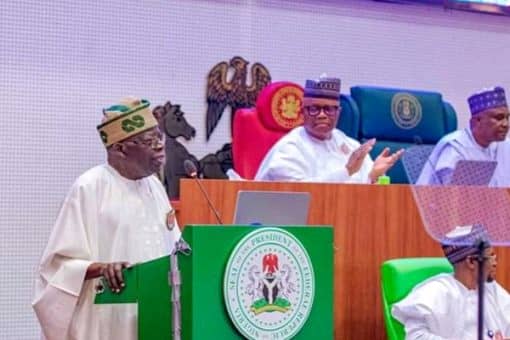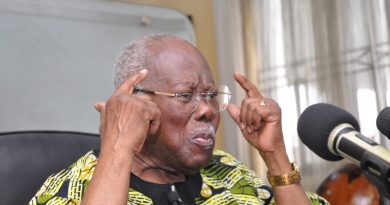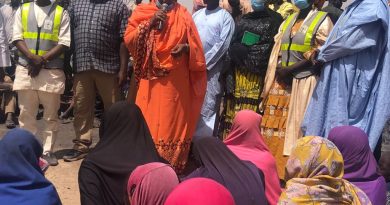Indigeneship Policy Will Exacerbate Ethnic Tensions In Nigeria – Group Warns… Says Regionalism Will Solve Ethnic-Motivated Frictions
The Atunto Foundation, a leading advocate for a restructured and inclusive Nigeria federation, has strongly cautioned against any move to impose a blanket indigeneship status across Nigeria’s diverse regions.
The group warned that such a policy would be in total disregard of the country’s rich cultural diversity and could trigger serious socio-political upheavals.
It would be recalled that the House of Representatives recently passed for a second reading, some bills for the amendments of certain sections of Nigeria’s 1999 Constitution (as amended).
One of the bills has to do with the Indigeneship of Nigerians.
Specifically, the bill is seeking for a Nigerian who has stayed for ten years in a particular place be granted every right that an indigene of that place has.
Also, the Sultan of Sokoto, Alhaji Sa’ad Abubakar, last week, advocated for the elimination of the policy that tends to recognize a distinction between indigenes and non-indigenes in any part of the Nigeria.
But Atunto is kicking against this; maintaining that it is fraught with a lot of minefields that could spark untold violence in different parts of the country.
The organization’s position was contained in a release signed by Chief Adedayo Alao, Elder E Ayiloge and Alhaji Muda Ganiyu, respectively Leader, Convener and Director of Information.
To make itself clear, the group defined indigenous to mean “ something that originated or occured naturally in a particular place, i.e., native. It means people inhabiting or existing in a land from the earliest times or before colonists’ arrival. It is obvious that the sponsors of the Indigeneous Bill are confusing indigeneship with citizenship”.
While acknowledging that extant confusion on citizenship and indigeneship is causing some tensions including violence in parts of the country, the group is of the strong opinion that returning to the regional system of government will permanently solve this problem.
“Indigeneship is not merely a legal or administrative classification – it is a cultural, ancestral and communal identity,” Atunto Foundation maintains.
It went further to say that “Any attempt to centralize and impose a uniform definition of who qualifies as an indigene undermines the local identity, historical origin and cultural foundations of our various communities.”
With over 250 indigenous ethnic groups, each possessing distinct histories and traditions, Nigeria’s heterogeneity makes a one-size-fits-all approach both impractical and dangerous.
Indigeneity, often shaped by unwritten customs and deep-rooted historical ties, cannot be legislated from Abuja or anywhere else without triggering resistance. Even if laws were enacted to enforce a uniform national standard for indigeneity, enforcement would likely be undermined by local resistance and non-compliance.
This will exacerbate ethnic tensions, and fuel perceptions of cultural domination and settler colonialism.
There are normally four tiers of identity framework known in the world: Visitors, Permanent Residents, Citizens and indigenes.
A visitor who meets certain criteria can become a permanent resident, while a permanent resident may become a citizen after meeting specific conditions, but indigeneship is restricted to people with ancestral, cultural, historical roots to the soil.
Rather than resort to uniform legislation from Abuja, Atunto Foundation calls for a decentralized and culturally sensitive approach.
Each indigenous ethnic nationality, region, or federating unit, in consultation with its traditional institutions and civil society, should be empowered to define the terms of the identity framework within its territory or region.
This approach aligns with the principles of cooperative true federalism, where local autonomy is respected while national cohesion is fostered through mutual respect and negotiated coexistence.
“We fully support inclusivity and national unity achieved through genuine mutual respect as true unity cannot be achieved by force or through the erasure of cultural distinctions. It must be built on respect for the identities, culture and histories of the people, and rights of all Nigerians.”
Atunto Foundatiion reaffirms its commitment to the regionalization of the country to foster unity rooted in justice, autonomy and mutual respect as distinct from artificial uniformity. It also recommended a return to Parliamentary System of Government for Nigeria.




